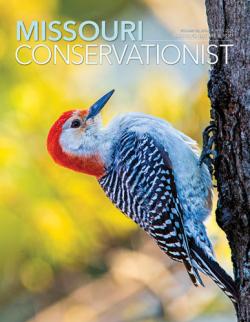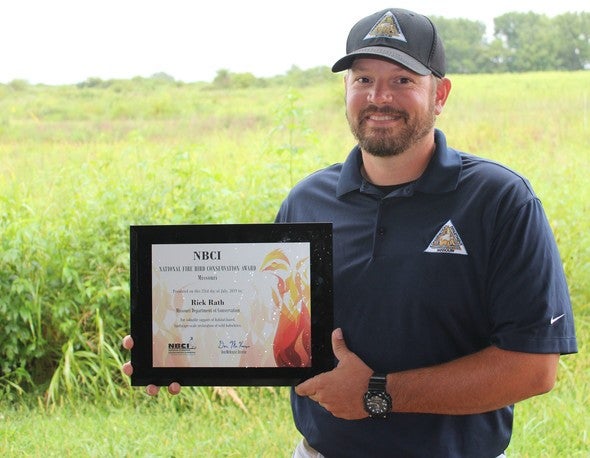
Xplor reconnects kids to nature and helps them find adventure in their own backyard. Free to residents of Missouri.


































Stay in Touch with MDC news, newsletters, events, and manage your subscription

Xplor reconnects kids to nature and helps them find adventure in their own backyard. Free to residents of Missouri.

A monthly publication about conservation in Missouri. Started in 1938, the printed magazine is free to residents of Missouri.


SPRINGFIELD, Mo. – The Missouri Department of Conservation’s (MDC) Rick Rath has been honored for his work on a challenge faced by many states – how to make things better for bobwhite quail.
Rath, who’s the MDC private land conservationist for Cedar, Dade, and Lawrence counties, has received the National Bobwhite Conservation Initiative’s (NBCI) Fire Bird Conservation Award for Missouri. This is one of 10 state-based awards that were presented in July at NCBI’s annual meeting in Carbondale, Ill. The NBCI’s Fire Bird Award recognizes individuals who have made significant contributions to habitat restoration of bobwhite quail populations.
The landscape of the counties Rath oversees is dominated by grasslands and woodlands. Over the decades, the grassland portions of these counties have been transformed from areas where native grass once flourished into fescue-dominated, heavily grazed areas that aren’t ideal for quail or other grassland bird species. Through many visits with landowners and walks through their fields and pastures, Rath has helped landowners realize native grasses have benefits for their livestock as well as wildlife. In the past two fiscal years combined (July 1, 2017-June 30, 2019) Rath has logged 442 landowner visits and written 250 landowner management plans. Rath has secured hundreds of thousands of state and federal cost-share dollars for landowners interested in promoting native grasses on their land.
It’s important to stress that increasing quail numbers is not the only goal of grassland habitat projects. The bobwhite quail is one creature in a rich mosaic of birds, reptiles, mammals and amphibians that comprise a grassland ecosystem. Improving quail habitat has benefits for many of these species, too.
Furthermore, management for grassland species doesn’t only benefit wild creatures that use the landscape. It often helps domestic ones, too. Promoting growth of native warm-season grasses as part of a rotational grazing system provides livestock forage that is higher in nutrition during summer than cool-season grasses like fescue.
More information about quail management can be found at https://mdc.mo.gov/property/agriculture.